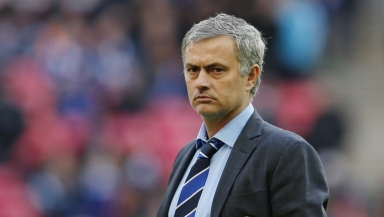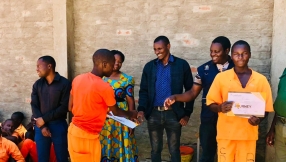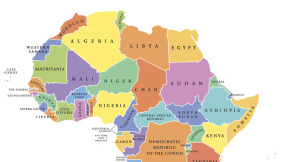
Chelsea manager José Mourinho has spoken out about his deep Christian faith, but has also admitted he never prays to God about football.
The 52-year-old Portuguese former footballer player, who is regarded as one of the greatest managers of all time, said he is a truly religious man.
"I believe totally, clearly," he told the Telegraph. "Every day I pray, every day I speak with Him. I don't go to the church every day, not even every week. I go when I feel I need to. And when I'm in Portugal, I always go."
He said he prays for his family, children, wife, parents, for happiness and a good family life. "But I can say the reality is I never go to the church to speak with Him about football. Never!"
He and his wife Tami support a Catholic food programme in Setúbal, Portugal but for genuine reasons of charity, not to be seen as do gooders. "We have a principle that we do it not for people to know, or to promote our profile. We do it because we can, and we want our son and daughter to understand how privileged we are, and to understand that other people need support," he said.
Mourinho's first job was teaching children with Down's syndrome and with mental disabilities. From there he went on to coaching 16-year-olds.
"Now I coach the best players in the world, and the most important thing is not that you are prepared from the technical point of view; the most important thing is the relationship you establish with the person. Of course you need the knowledge, the capacity to analyse things. But the centre of everything is the relationship, and empathy, not only with the individual but in the team. And to have that empathy in the team we all must give up something," he said.
"It's not about establishing the perfect relation between me and you; it's about establishing the perfect relation to the group, because the group wins things; it's not the individual who wins things."
He spoke out for team spirit but said individual talent was the most important thing for a player. He also described the change in culture, where top players expect extreme wealth even when they are just starting out. "Once players came to football expecting to be wealthy when they retired. Now they expect to be wealthy before they've played their first game!"
He said the game was collective. "The individual is welcome if you want to make our group better. But you have to work for us, not we have to work for you. When the top player arrives, the team is already there. It's not him who comes to discover the team, like Columbus discovering America. No, no, you are coming now to help us be better."

At Chelsea, he won the Premier League in 2005 and 2006, the FA Cup and the League Cup twice. He moved to Inter Milan and Real Madrid and in 2013 returned to Chelsea.
He said the most interesting thing he has done outside football was visit the Ivory Coast in his role as World Food Programme Ambassador Against Hunger. "This has been a fantastic experience for me, that I shared with my wife and kids," he says. "We know about poverty, but to be directly in contact with that reality was fantastic – negative, positive, difficult to deal with, but at the same time [there is a feeling of] tremendous pride to be connected with it, to promote their works."
He consciously tries to be a good person. "I don't have problems with family or friends. I am a good family person; I am a good friend. I try to support people that I don't even know. Do I make mistakes? Yes. My professional area is not only very competitive – it is competitive and emotional and [you must] push people for a certain kind of behaviour – absolutely, yes. But the professional life is only part of a person; a person is much more than that."
He said he liked that he could still have personal privacy in England, in spite of being well known. "I think people in London understand what it is to disturb and not to disturb. They have a notion that people need space, that people deserve respect. If I am disturbed it is always by non-English people. The English people in the restaurant, of course they want an autograph or a selfie, but they wait until I finish my meal. Go to a shop, they wait – they don't come when I'm choosing my socks. And walking in the street I have the same feeling. It is impossible in London that somebody would disturb because of a negative result when you are walking in the street with your family. Impossible! In Madrid, Milan – always."














